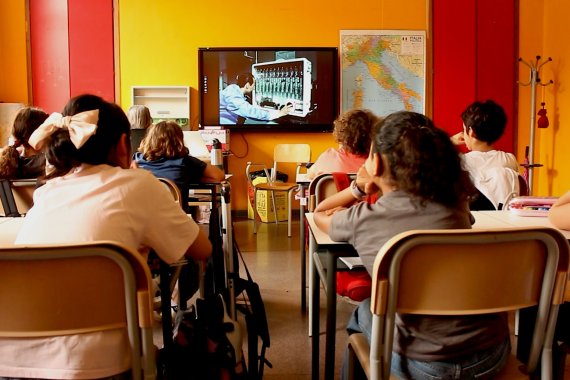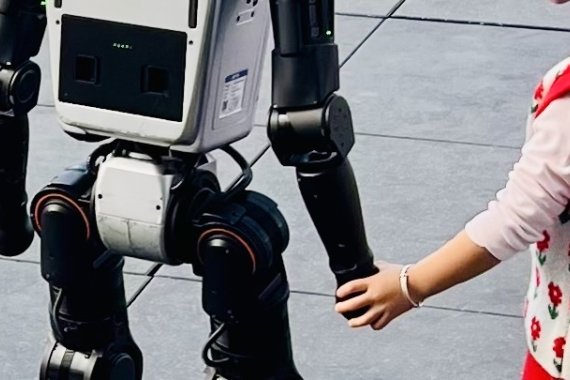Future Leaders in the World of Work: South-South University Youth Shaping 2030 and Beyond
Future Leaders in the World of Work: South-South University Youth Shaping 2030 and Beyond
21 Ottobre 2025
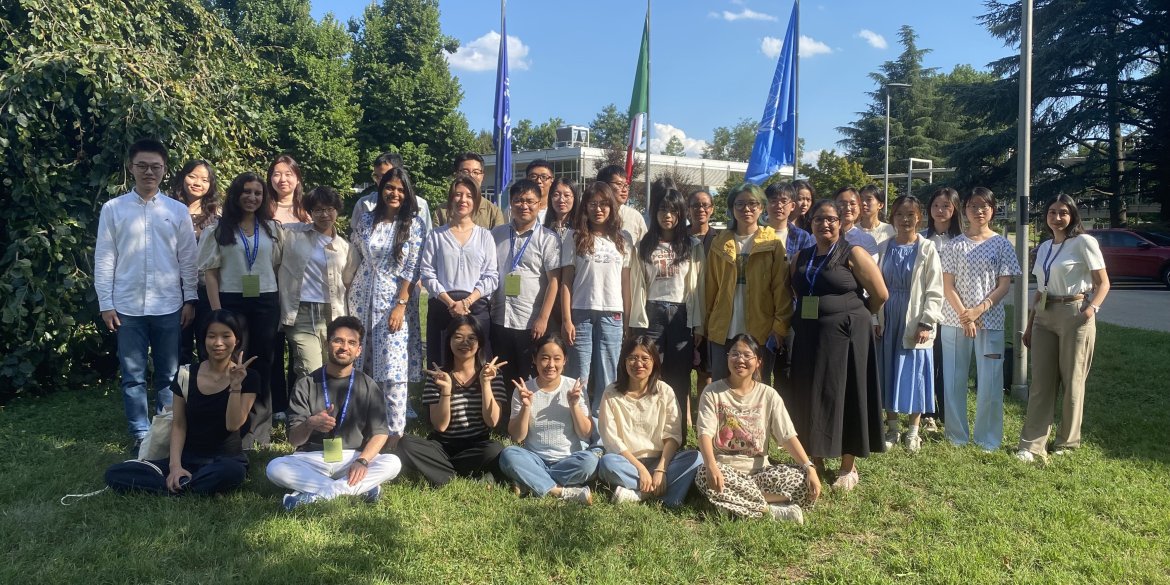
In preparation for the upcoming Second World Summit for Social Development, the second edition of the Future Leaders in the World of Work – South-South University took place at the United Nations Turin Campus.
The two-week course assembled BRICS+ youth committed to shaping the next phase of social sustainability through South-South and Triangular Cooperation (SSTC) modalities. Participating youth tailored their learning journeys to their aspirations, received tailor-made career coaching in preparation for global careers, and were trained to leverage SSTC modalities for socially sustainable solutions and action-oriented recommendations shaping the world of work.
Participants engaged in plenary and elective sessions hosted at the ITCILO campus and underwent a study visit to the ILO headquarters in Geneva. They experienced firsthand what drafting action-oriented recommendations looks like within the framework for discussion provided by the ILO as a UN specialized agency advancing social justice for decent work through human-centred technology.
The programme’s blend of specialized electives, dynamic workshops, and collaborative group work coalesced into an enabling learning journey, which helped test and refine real-world strategies for the future of work.
Abdullah Ammar
KDI and University of Oldenburg
With participants brought closer to the ILO mandate, the course welcomed action-oriented recommendations ahead of the ILO’s participation in the Summit, exposing subjects at the heart of current policy and governance debates. Leveraging the ITCILO’s Future Foresight tools, they were taught by Delphine Dall’Agata (Learning Innovation Programme, ITCILO) to envision the future of the world of work. The course went beyond training to being an exploratory ground for young people, transforming the ITCILO into a sounding board for social sustainability aspirations and SSTC-focused suggestions
The interactive approach of the South-South University encouraged us to think critically and learn to explore future possibilities, thinking about the consequences of policy decisions through real-world examples and data.
GU Fangting, BA Student of Japanese Studies
Shanghai Jiaotong University
Read below a summary of “Fundamental Considerations” that emerged during the course. Recommendations are divided by elective course tracks.
Water, Work and Digital Futures
Based on relevant reading materials and discussions previously held with Dr Laura Martínez-Álvaro (Founder, Breakthegap), participants who joined the “Inclusion and Equality – Equal Access to Decent Work Opportunities and South-South Cooperation” elective reached a consensus around megatrends believed to hold the most disruptive potential for the promotion of equality and inclusion in the world of work of the BRICS+ countries:
- increased water scarcity,
- the proliferation of neo-nomadic lifestyles, and
- the dismantling of community through social withdrawal.
On water scarcity, participants expressed concern about the impact that extremely high water stress could exert on water-dependent sectors (currently employing 1.5 billion people) of the global economy by 2050. They called for the adoption of human-centred, AI-powered water management solutions to strengthen the effective governance of water services while fostering the creation of inclusive, more, and better jobs. They further invoked stronger corporate water stewardship supported by domestic and international legislative measures, while seeking to heighten public awareness about the value of the natural commons. Here, “inclusion” was translated into the completion of a just transition for decent work in environmentally vulnerable sectors, and SSTC was seen as key for not merely knowledge- and resource-sharing, but for collaborative resilience-building.
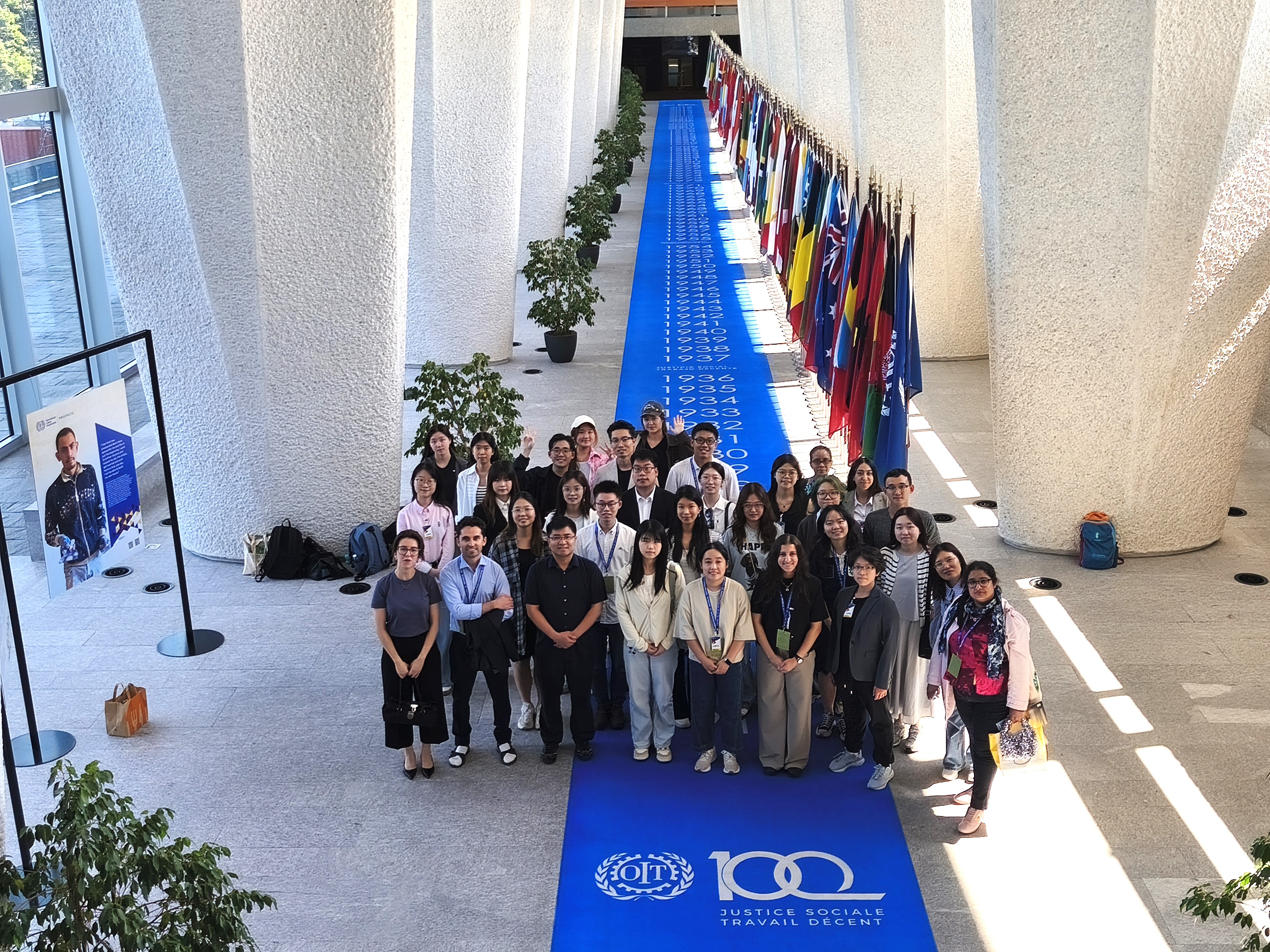
Participants focusing on neo-nomadic lifestyles envisioned a not-too-distant future where work mobility is the norm, and service sectors office jobs leave room for new audacious work modalities and arrangements. Here, SSTC initiatives could spearhead efforts toward the development of new frameworks for a “global digital identity”, and legislation to protect service sector employment opportunities which are fully remote, for all. In this future scenario, the definition of decent work is further expanded, enabling decent youth employment in a borderless digital labour market that is fully accessible.
Understanding how different dimensions of social justice are interconnected is essential for creating effective and equitable solutions to global challenges.
Hania Amr El Behairy
Economic Researcher, National Institute for Governance and Sustainable Development
Another prominent theme was the potentially growing pervasiveness of the societal megatrend of social withdrawal. In a future of growing dependency on AI companionship and extended reality (XR) experiences, participants reflected on the greater integration of mental health education across all education curriculums (from primary school onward). They also agreed stronger regulation on AI-powered and XR-hosted social and professional spaces has the potential to greatly benefit youth mental and overall wellbeing. SSTC measures could create safe havens for experimentation and pilot projects on continuing to leverage technology as a tool for the preservation of community and societal belonging.
Reimagining Decent Work Amid Global Demographic Shifts
Following elective courses facilitated by Carlotta Clivio (INTEGRŌ, Development Investment Programme, ITCILO), participants working on the demographic shifts affecting societies in the BRICS+ debated their concerns around the rise of three mega-trends:
- nationalism,
- warming global temperatures, and
- the rise of sustainable consciousness.
They suggested invoking the promotion of “balanced, moderate nationalism” leveraged as a tool for domestic societal cohesion and international cooperation against exclusionary, centrifugal forces thwarting peace, stability, economic growth and decent work; establishing international green technology incubators whilst creating fast-track patent systems for climate technologies; and fostering of South-South, people-to-people food security schemes to address the gradual, ethical strengthening of legislation surrounding access to healthy foods for all, while protecting those whose livelihoods depend on food production and safe food value chains.
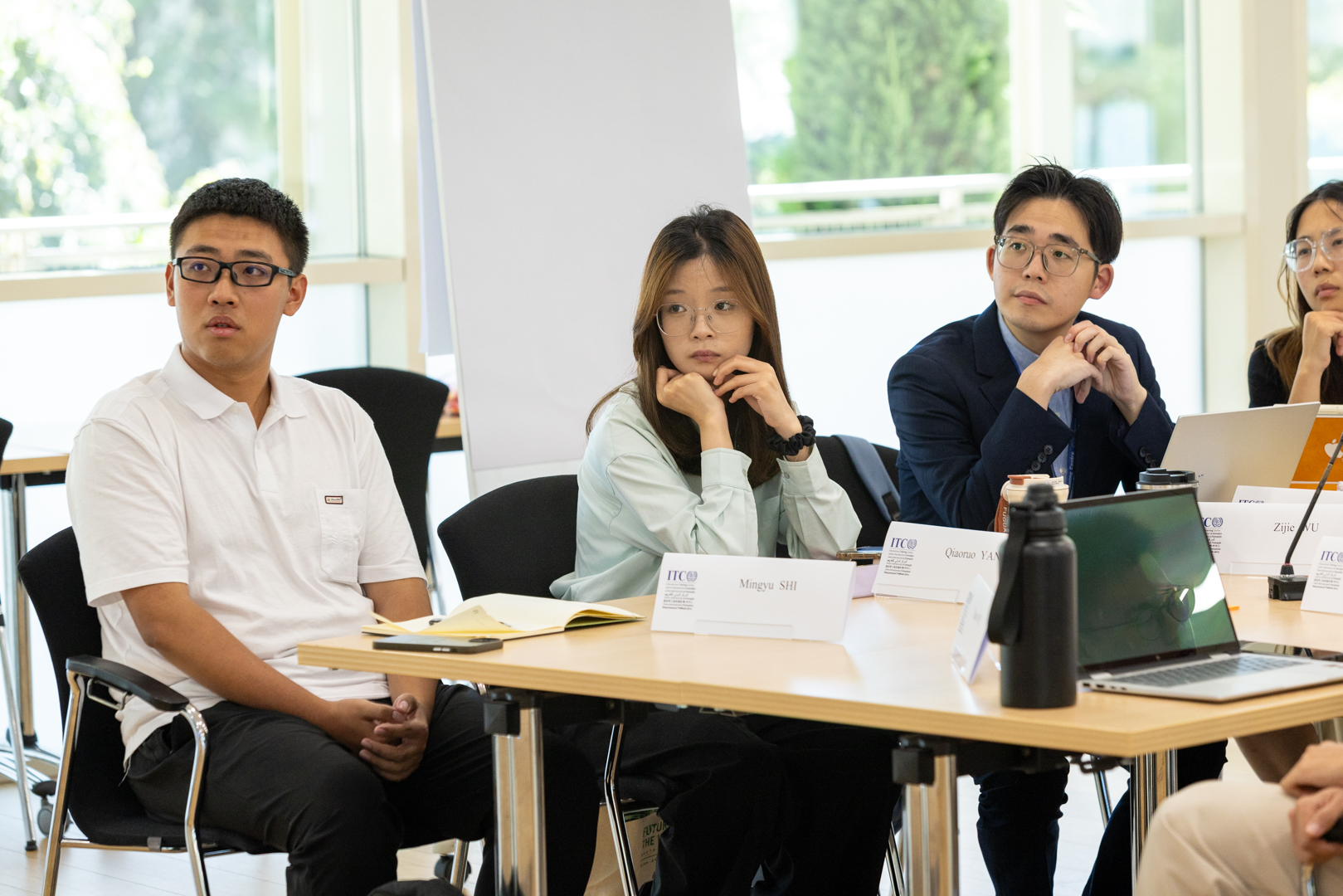
Emerging Technologies and New Forms of Work in the Global South
The identified megatrends for this specific elective curated by Professor Alexis Antoniades (Georgetown University, Qatar) and facilitated with Viviane da Silva Dilly (Associate Programme Officer, Development Investment Programme, ITCILO) course included:
- the acceleration of artificial intelligence and automation;
- the rise of digital labour platforms, issue at the heart of the 2025 International Labour Conference; and
- the growing uncertainty surrounding algorithmic governance.
While expanding productivity frontiers, participants noted how these shifts seem to be simultaneously deepening divides in access to technology, data, and privacy protection.
With intelligent automation transforming key industries and digital platforms mediating millions of transactions daily, discussions focused on a human-centred technological transition that ensures equitable participation and protection. Participants emphasized the urgent need for portable social protection schemes that accompany workers across borders and platforms, as well as regulatory sandboxes allowing governments to pilot policy responses to AI and emerging technologies in safe, evidence-based environments.
In the context of emerging technologies, participants defined “inclusion” as the capacity to guarantee dignified and fair working conditions within new digital economies—particularly for youth, women, and informal workers—by embedding international labour standards into the design of algorithmic systems.
Therefore, participants urged SSTC action for the sharing of regulatory experiences, the participatory development of ethical AI frameworks, and the construction of regional digital infrastructures capable of supporting inclusive innovation. By linking innovation with protection, participants employed SSTC as a mechanism for ensuring that technological emergence translates into broad-based and sustainable human development.
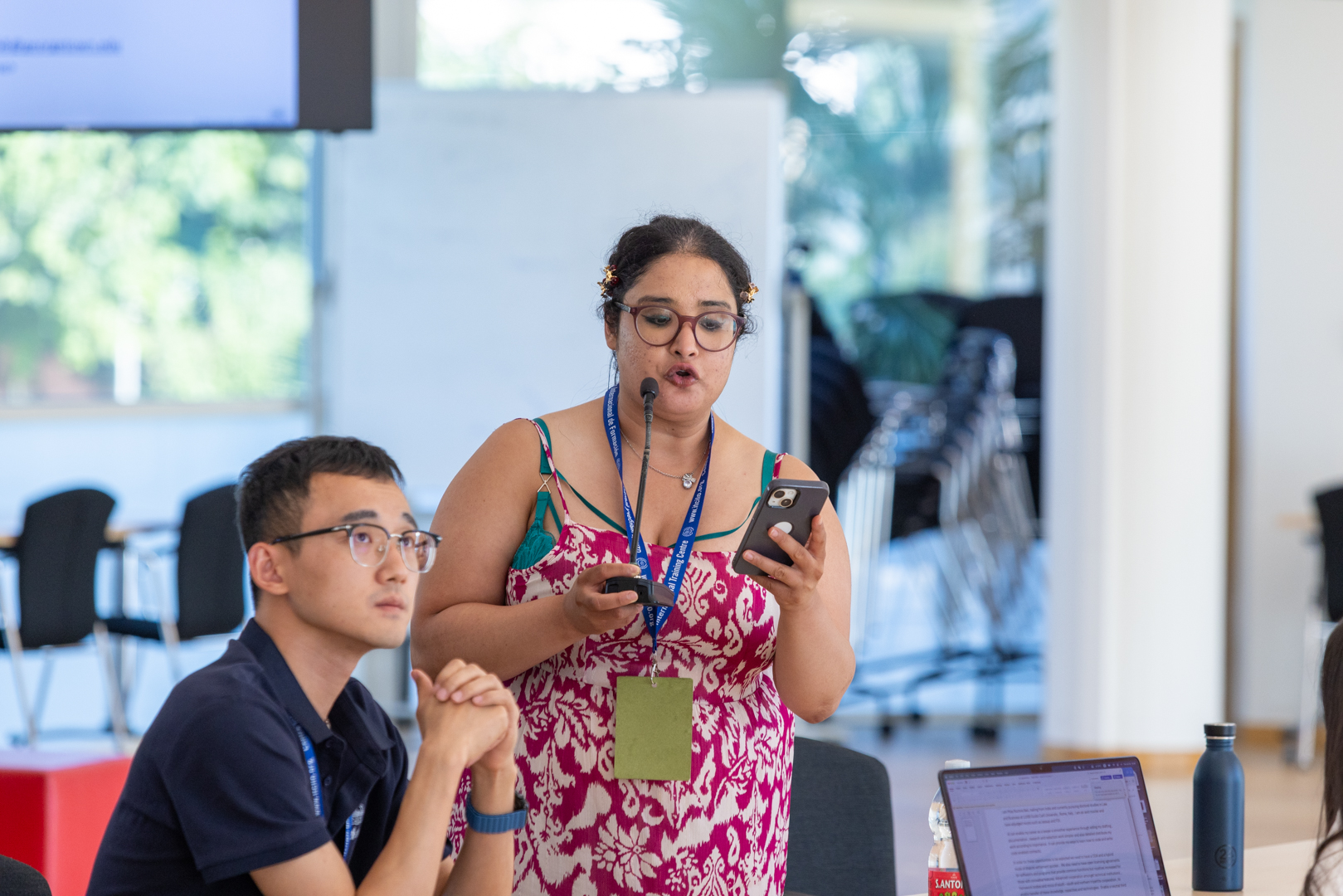
Trade and Investment for Increased Decent Jobs Across Supply Chains
In conclusion to sessions curated and delivered by Joel Alcocer (Programme Manager, Development Investment Programme, ITCILO) and Marie Clarisse Chanoine (Programme Officer, Development Investment Programme, ITCILO), participants agreed future trade and investment flows must simultaneously drive technological advancement, social inclusion, and environmental sustainability. They identified three megatrends shaping this transformation:
- the digitalization of trade,
- the reshoring and regionalization of supply chains, and
- the expansion of sustainable investment in emerging sectors such as digital medicine and green technologies.
With global supply chains undergoing structural realignment, participants explored strategic investments in digital and health technology ecosystems, particularly in developing economies. They proposed the establishment of public–private partnerships (PPPs), innovation funds, and skills-based financing mechanisms to create local employment and support digital upskilling.
Furthermore, they stressed the role of supportive legislation and trade incentives in promoting ethical sourcing, fair wages, and decent working conditions throughout supply chains.
Inclusion, in this context, was reflected in the vision of open and fair trade systems that empower small and medium enterprises (SMEs), youth entrepreneurs, and women-led businesses to participate in cross-border digital markets. SSTC was recognized as an essential platform for knowledge exchange, investment mobilization, and capacity building—enabling countries of the Global South to co-develop resilient and innovation-driven supply chains. By aligning trade policy with decent work objectives, SSTC can help ensure that globalization evolves toward equity, sustainability, and shared prosperity.
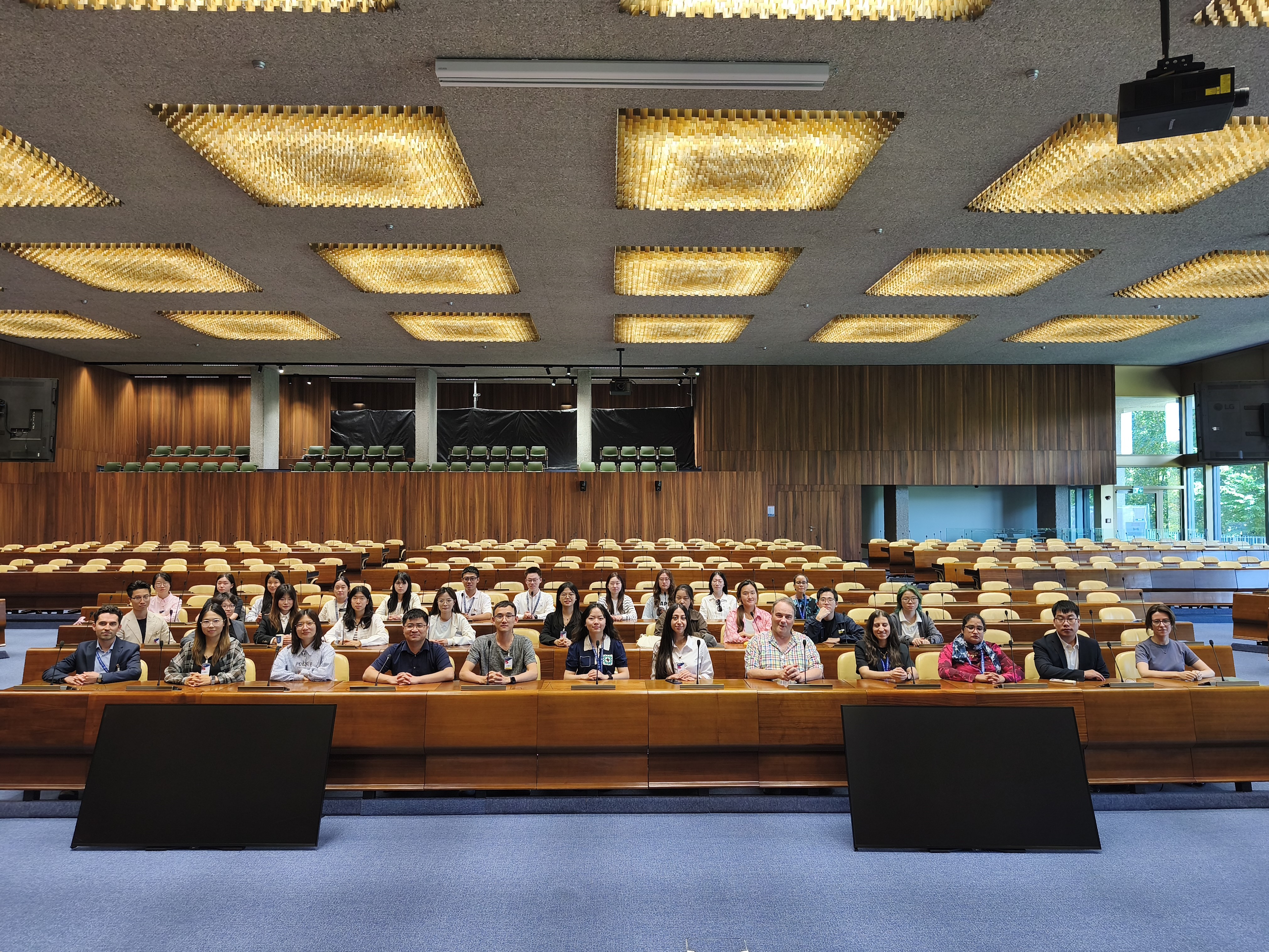
Future Leaders in the World of Work – South-South University are an open training activity part of INTEGRŌ, the global competency development facility for future leaders in the world of work. A flagship training event of the Future of Work SSTC University Network, the South-South University launched shortly after the publication of the reviewed Draft Political Declaration to the Summit.
Join the next generation of mission-driven leaders with an ambition to shape international organizations, the social and solidarity economy, and the private sector.
Learn more
